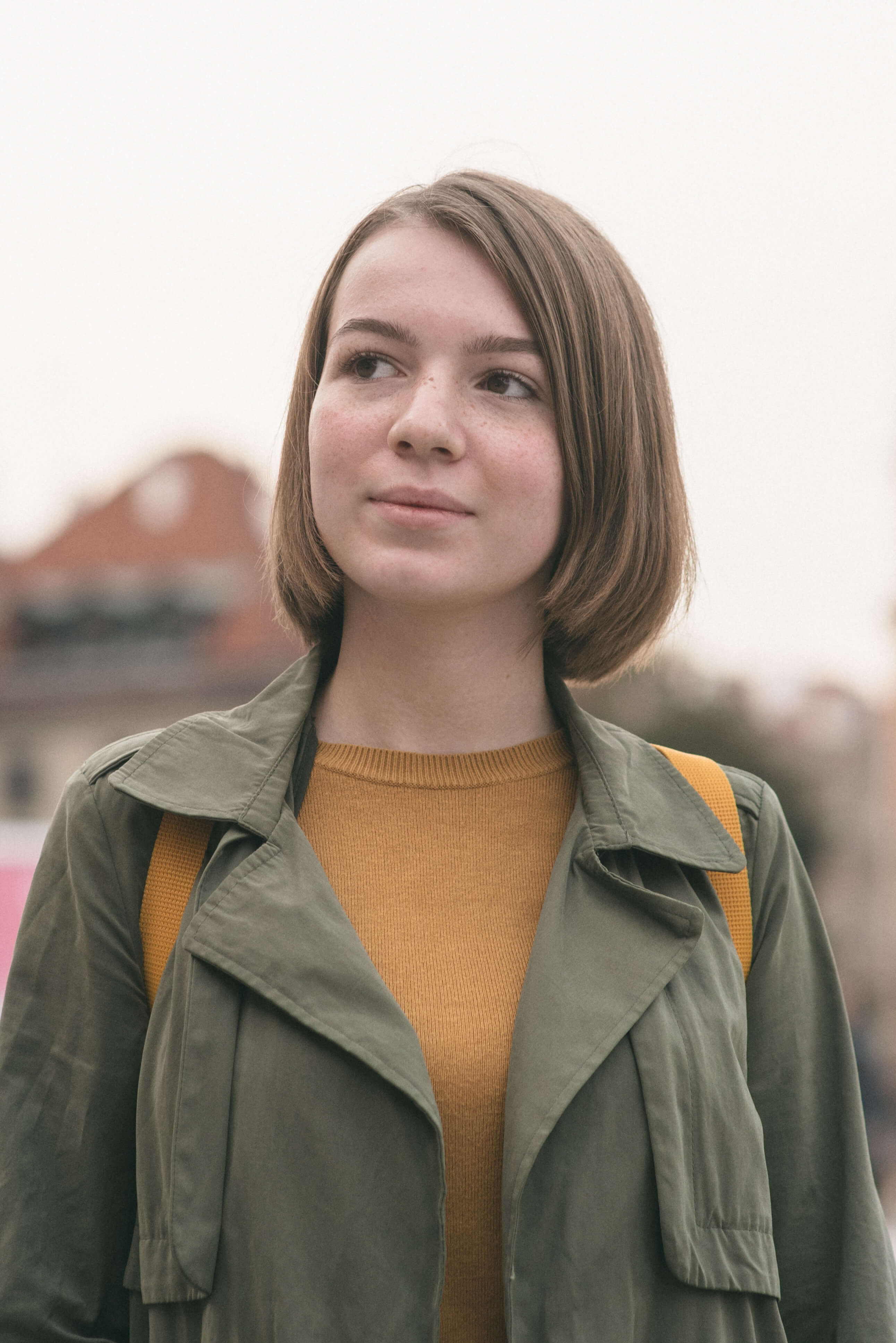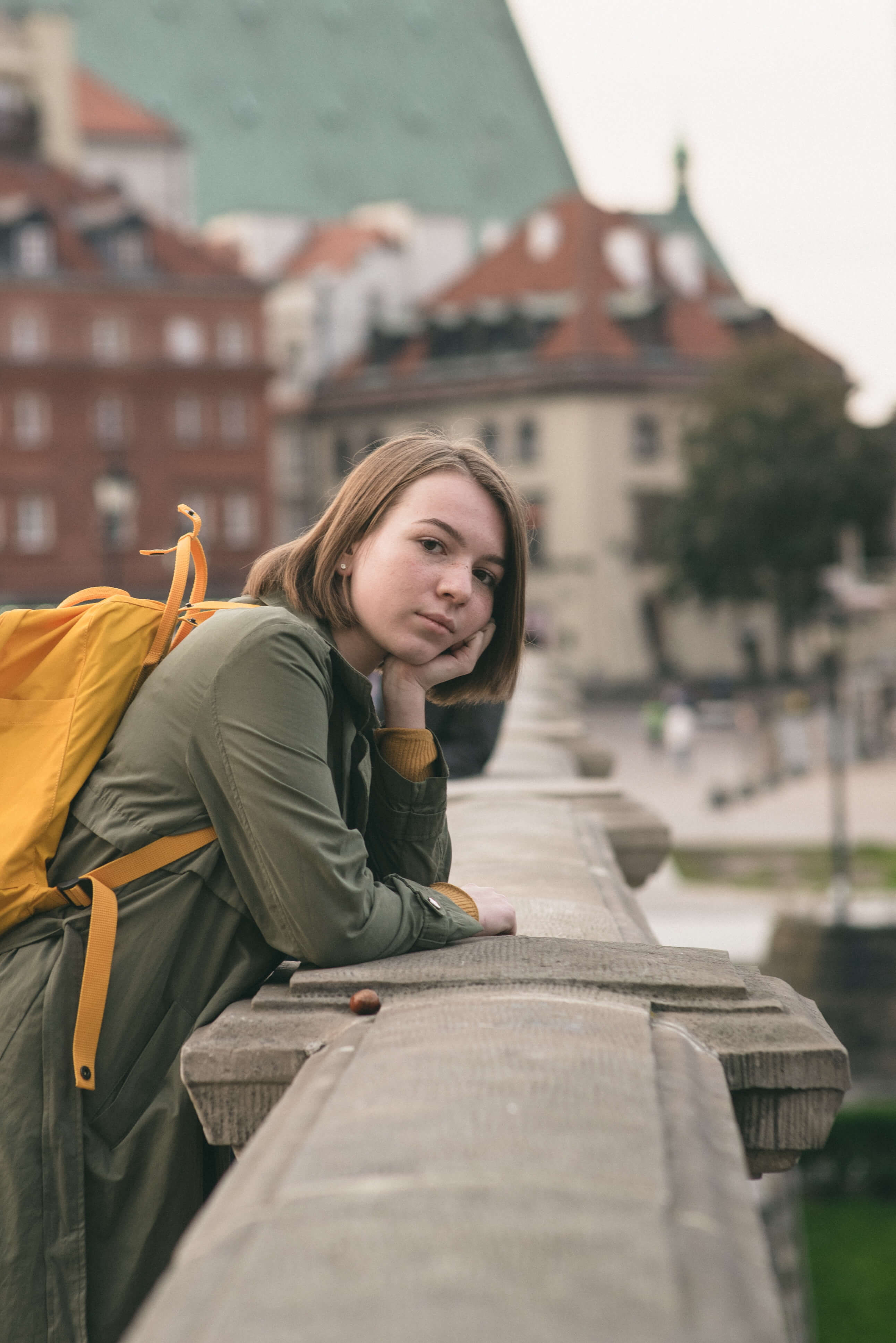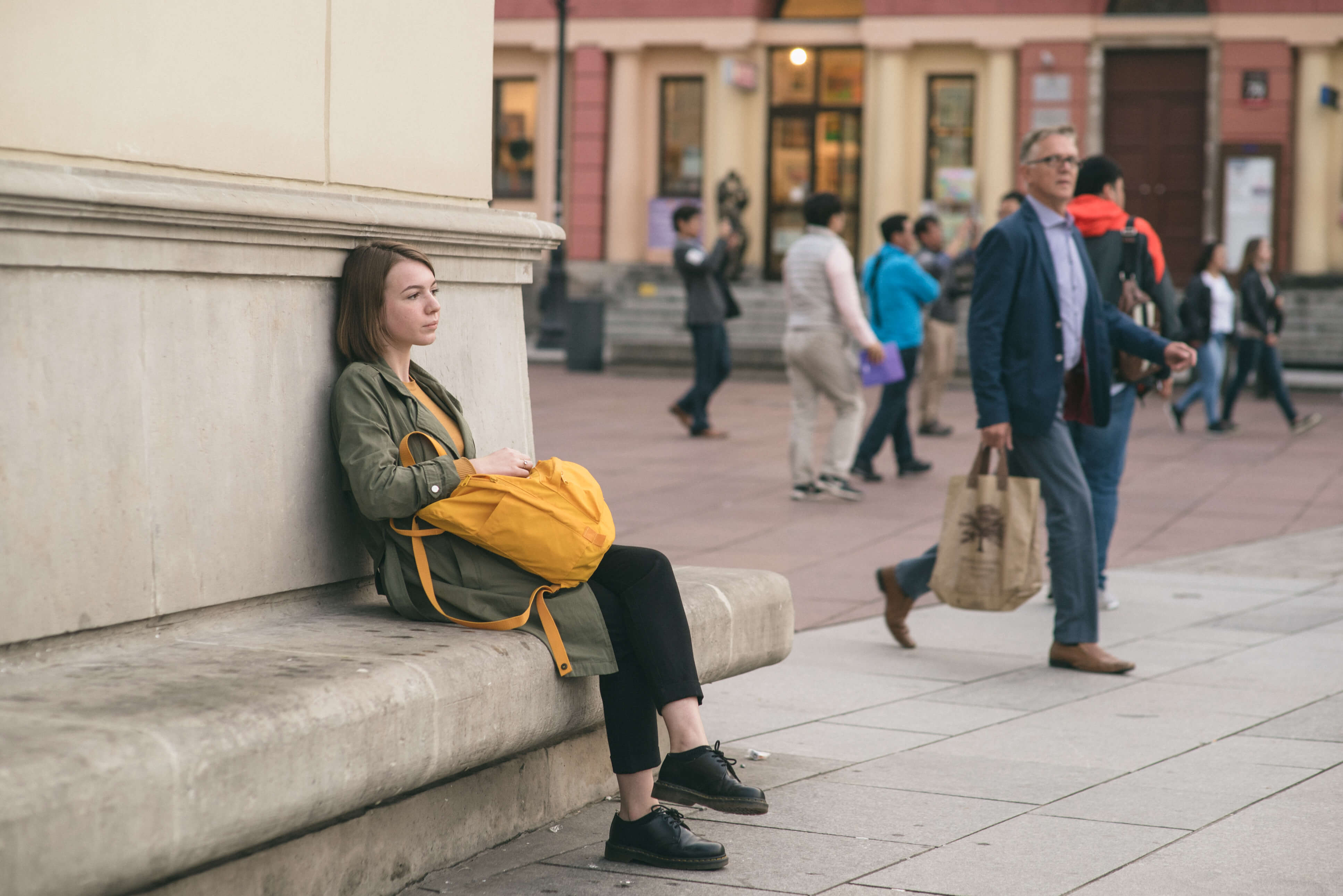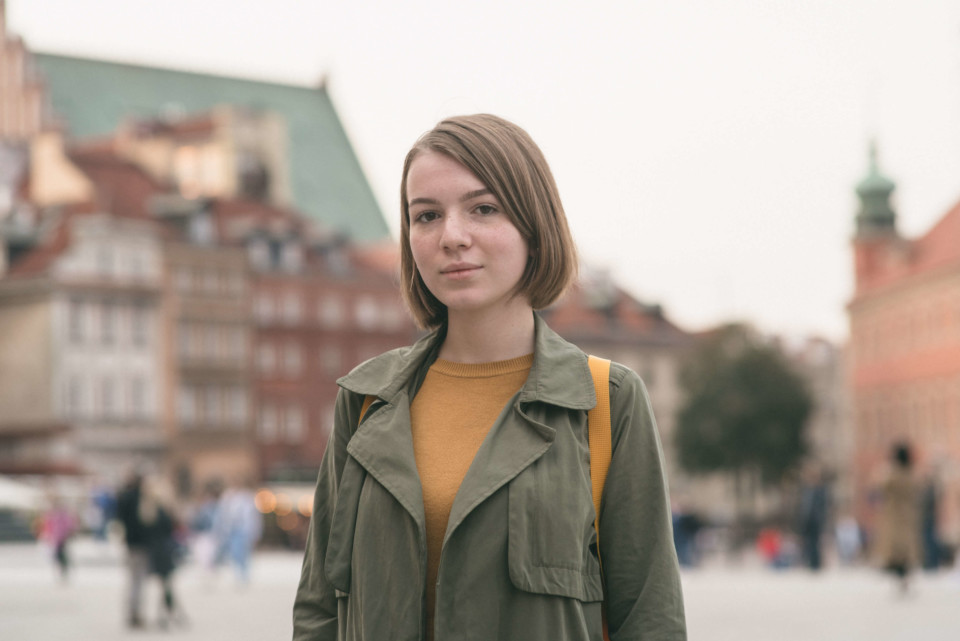A M E L I A
Warsaw | 2017

A M E L I A
City — Warsaw
Age — 15
Love life — Single
Profession — Student and founder of a Polish blog about depression http://porcelanoweaniolki.pl
Years in Warsaw — All her life
Location — Stare Miasto (the old town)
T H E W A R S A W S T O R I E S
‘CHILDREN
SUFFER FROM
DEPRESSION
AS WELL’

- What makes you really happy?
“Hanging out with my friends, because relationships are really important to me. And I really, really like studying, although not at school. I think that knowledge is everywhere, with every step you take. I like to study by myself at home or go to the university to follow courses in physics and philosophy. They gave me permission to do that, even though I’m too young to attend university.”
- What do you think makes you different than other people?
“That I have such an open mind and that I am writing a blog about depression. No one around me spoke openly about depression, not at school, nor in my family or my group of friends. Because of my blog, friends who are suffering from depression are being more open about it. People I’ve never met send me emails. I also talk about it on television, because I want people to know that children suffer from this illness as well. But not everyone likes my blog. Especially the teachers at school say it’s stupid and redundant; that I should stop it.” - What is the biggest lesson life has thaught you so far?
“I used to think that depression had taught me a lot, but that isn’t true. Therapy taught me a lot. It’s my impression that only then I became myself. I was lost for a really long time, but now I know who I am, what I feel and how to talk about it. I know what my purpose is and what I want to achieve – being happy. There is no prescription for happiness, every day you have to think about what it is that will make you happy. In therapy I had to work through a lot of things from my childhood. I had to rewrite the story and learn to think about it differently.”

- How did you get depressed?
“The first symptoms started to appear when I was twelve years old. There were many reasons. My parents got divorced and I lived with my mom, but she was really ill and spent a lot of time in the hospital. I was mostly home alone with my grandfather. I felt really lonely. I always did really well in school, but I felt too much pressure and didn’t have a great connection with my classmates, so I started to cut classes. One teacher saw what I was going through and was really there for me. She felt like a friend and was the only person I wanted to talk to about how I felt and what happened. She understood I needed help. When she noticed the scars on my stomach, she sent me to therapy. I was happy to get help. Two months later, in summer, my teacher and dad drove me to a mental hospital. There I found out I suffered from depression. I felt afraid, angry, lonely, confused, I didn’t want to eat, I couldn’t sleep, felt irritable and I had isolated myself from others. I had suicidal thoughts and nothing brought me joy. I spent two months in the hospital. I took antidepressants and I went to therapy. After I got back home I wanted to be open to my friends and family about what I was going through, because depression is a big problem in Poland. There aren’t even enough therapists to go around, you have to wait and wait for therapy and to get admitted to a hospital. I’m still going to therapy. Since my mother passed away in March last year, I’ve been suffering from panic attacks and I must work on that. My therapist said that it was traumatic that I lost my mother and I need to learn how to deal with it.” - What is your greatest struggle in life?
“That I have to go to school. It’s the worst. School cuts your wings. The system is stiff and tight and not adapted to young people. It doesn’t allow creativity and individuality. It don’t think I learn many competences there that are extremely useful in such a fast-growing world. I’m really tired of sitting there for eight hours a day. My mother took me to home-education, but when she died, I had to move to my dad and go back to school.”
- What is your biggest disappointment in life?
“I’m still young and I believe in people. Maybe I’m a little naive, but I believe that every person is good and that you should see the good in people.” - What is the best thing that ever happened to you?
“That I met so many wonderful people who really helped me. It’s amazing. My teacher, my parents, my friends, the therapist.” - What is the best advice someone ever gave you?
“Advice isn’t that important to me, the presence of other people is. I don’t like giving, getting or asking for advice. Often when people ask for advice, they already know the answer.” - What advice would you give other women in Europe?
“Although I don’t like to give advice, I would like to make women appreciate themselves more. Know yourself, take care of yourself and grow. Each day, think about how you’re feeling and do what feels good for you.” - What does Warsaw mean to you?
“I like Warsaw, but I’m not attached to the city, or the country. I think I can live somewhere else. From my mother I’ve learned a lot about different countries and cultures. She wrote books about it and gave workshops where she invited refugees. But school doesn’t like it that I am this open-minded, they want me to have a patriotic attitude and feel attached to Poland. Maybe I’ll stay in Poland, but it really doesn’t matter to me. What I like about Warsaw are the old town and the river. I have lots of memories there. And I like that Warsaw is a big city that provides a lot of opportunities. I just don’t like politics, I don’t like to follow the news. I don’t understand all the quarrels about it, I don’t think it is as important as everyone thinks it is. I don’t understand why the world is so divided between people. Sometimes I wonder why the world can’t just be one state. That would solve a lot of problems. I don’t think that there’s a special type of woman in Warsaw. I think we are all alike in Europe.”
Photos by Marta Ankiersztejn-Węgier

